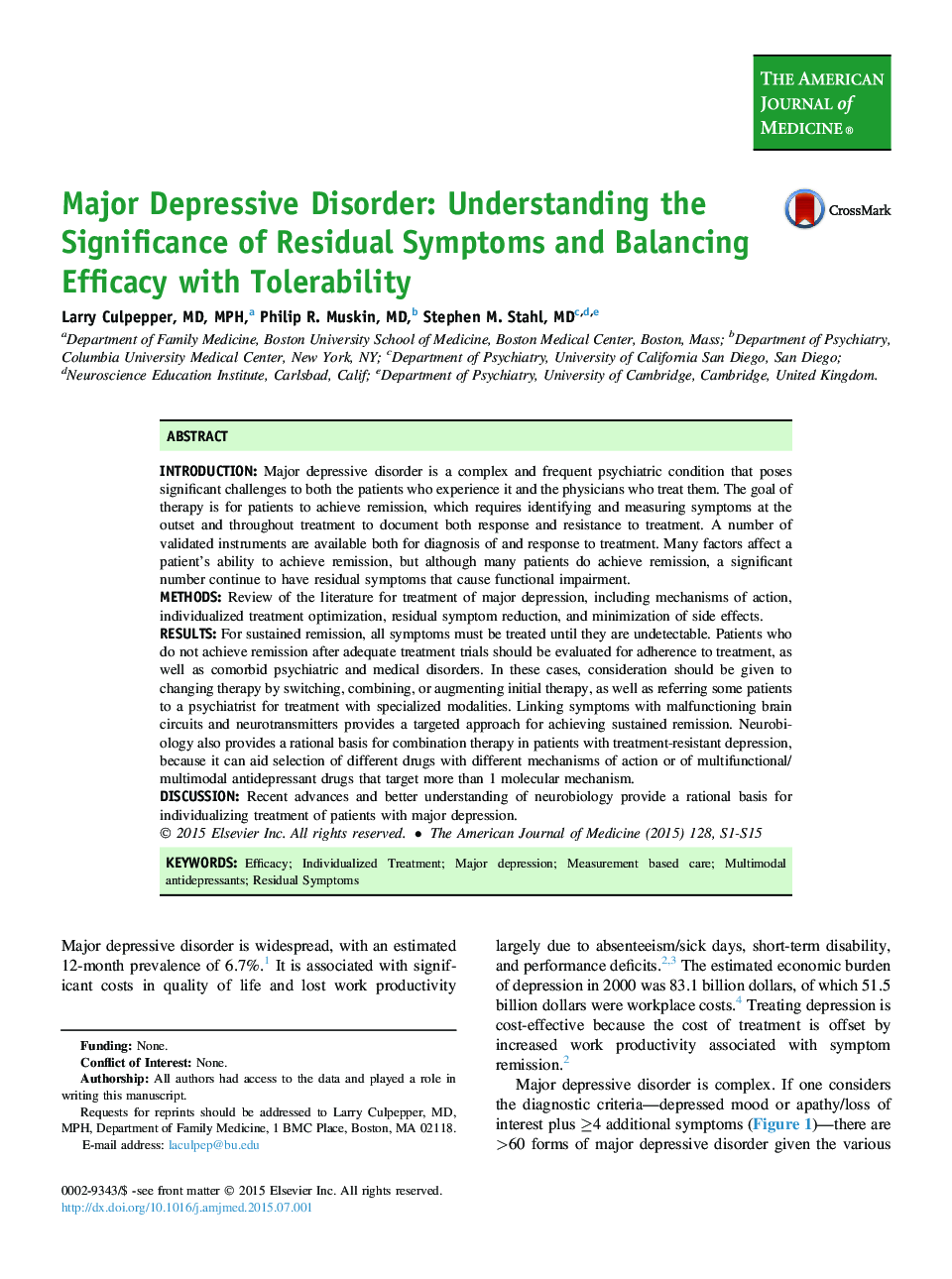| Article ID | Journal | Published Year | Pages | File Type |
|---|---|---|---|---|
| 2722443 | The American Journal of Medicine | 2015 | 15 Pages |
IntroductionMajor depressive disorder is a complex and frequent psychiatric condition that poses significant challenges to both the patients who experience it and the physicians who treat them. The goal of therapy is for patients to achieve remission, which requires identifying and measuring symptoms at the outset and throughout treatment to document both response and resistance to treatment. A number of validated instruments are available both for diagnosis of and response to treatment. Many factors affect a patient's ability to achieve remission, but although many patients do achieve remission, a significant number continue to have residual symptoms that cause functional impairment.MethodsReview of the literature for treatment of major depression, including mechanisms of action, individualized treatment optimization, residual symptom reduction, and minimization of side effects.ResultsFor sustained remission, all symptoms must be treated until they are undetectable. Patients who do not achieve remission after adequate treatment trials should be evaluated for adherence to treatment, as well as comorbid psychiatric and medical disorders. In these cases, consideration should be given to changing therapy by switching, combining, or augmenting initial therapy, as well as referring some patients to a psychiatrist for treatment with specialized modalities. Linking symptoms with malfunctioning brain circuits and neurotransmitters provides a targeted approach for achieving sustained remission. Neurobiology also provides a rational basis for combination therapy in patients with treatment-resistant depression, because it can aid selection of different drugs with different mechanisms of action or of multifunctional/multimodal antidepressant drugs that target more than 1 molecular mechanism.DiscussionRecent advances and better understanding of neurobiology provide a rational basis for individualizing treatment of patients with major depression.
